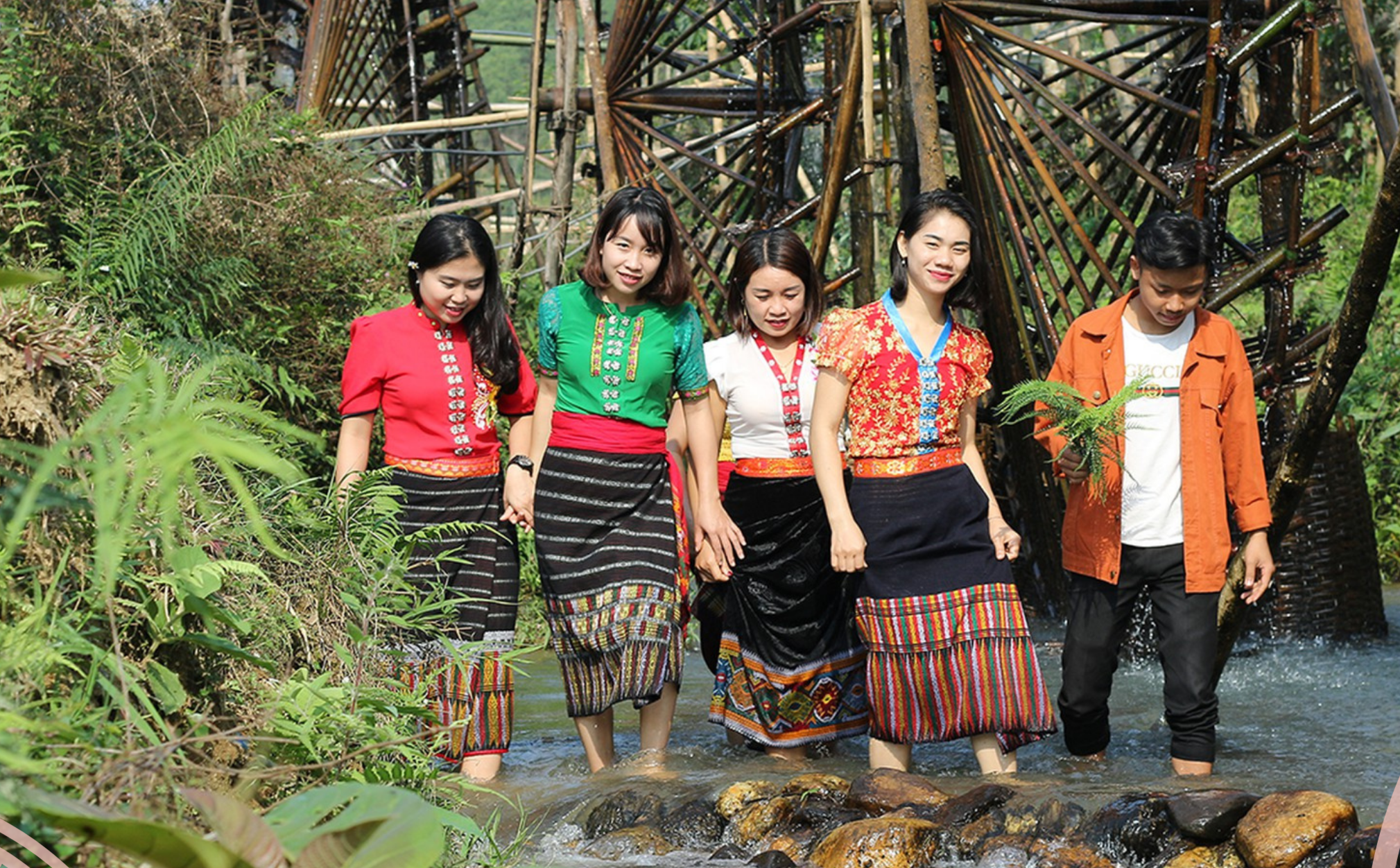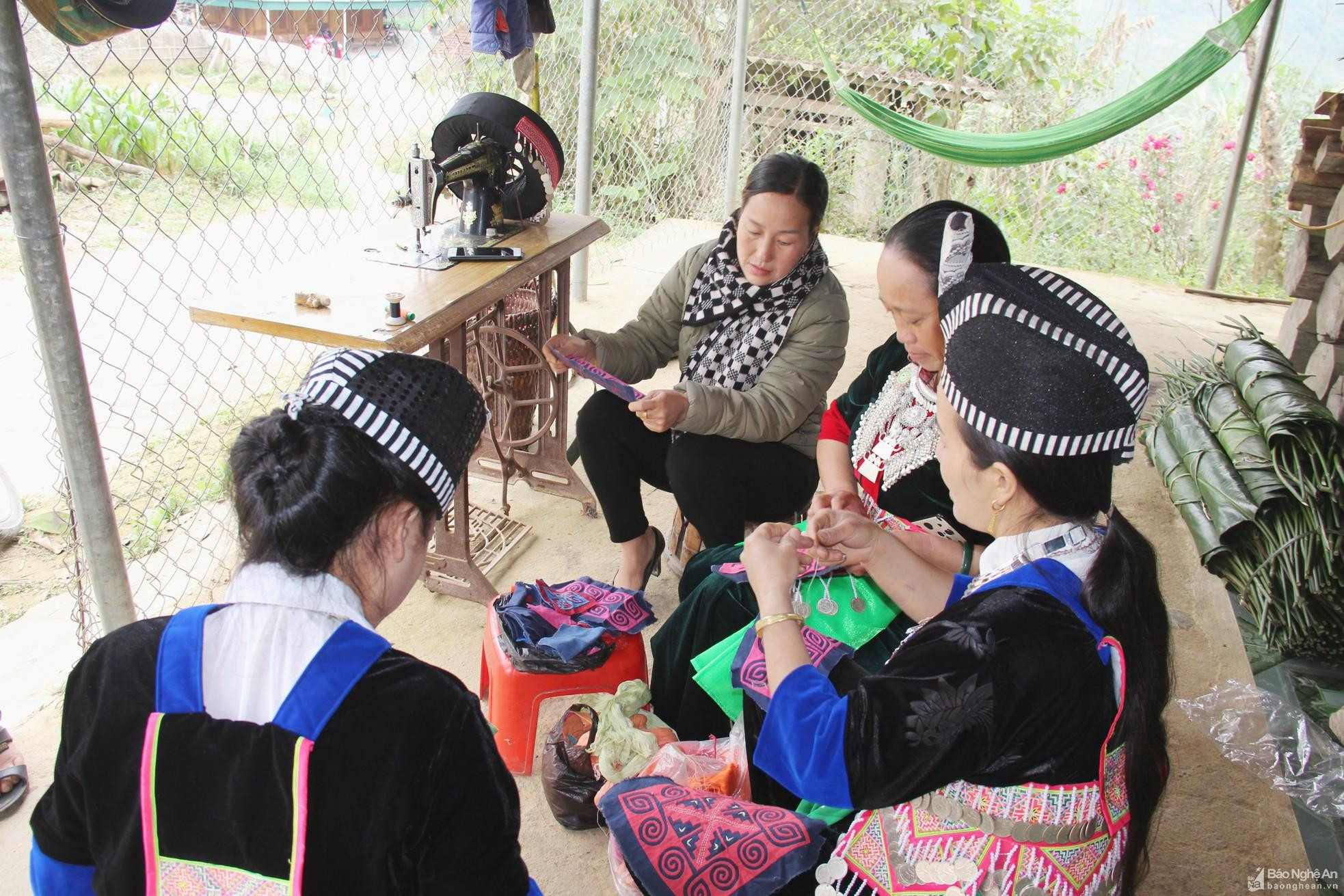Taking advantage of language issues to sabotage and divide the great national unity bloc
Recently, in areas with ethnic minorities, some bad elements often take advantage of the language issue of ethnic minorities to spread fake news, distort the Party and State's guidelines and policies, incite ethnicity, divide regions, destabilize social order and security... Therefore, we need to be extremely vigilant, promptly identify this issue and come up with effective methods of combating and preventing it...
In recent times, in addition to fabricating and slandering the religious and human rights situation in Vietnam to sabotage our Party and State, some reactionary, extremist, and ill-intentioned individuals and organizations have frequently taken advantage of and promoted the politicization and internationalization of ethnic issues to create pretexts to exert pressure and interfere in Vietnam's internal affairs.
They took advantage of the shortcomings in the preservation and development of ethnic languages in some localities, calling for the need to organize international conferences on ethnic minorities to arouse and incite nationalist and separatist ideas among some ethnic groups. Many distorted contents were posted by them in some overseas magazines and social networks to call on international public opinion to "speak up" on the issue of ethnic minorities in Vietnam.
 |
The charm of a Thai girl from Western Nghe An in traditional costume. Photo: Dinh Tuan. |
For example, reactionary elements have established illegal groups with the slogan "preserving and developing the history, religion and culture of the Khmer people" but in reality their main activities are to propagate, distort and divide the Khmer ethnic group in the South from the Kinh people, defame and lower the prestige of patriotic and progressive dignitaries and monks, thereby inciting secession and calling on people to join the struggle to establish the so-called "Khmer Krom State"...
Or through programs on the language and writing of ethnic minorities in the Northwest and Central Highlands, some opposing elements have carried out the trick of "peaceful evolution" by distorting and misrepresenting the cultural preservation situation of ethnic minorities; distorting historical issues to divide ethnic minorities from the Kinh people. More viciously, they often use tricks of bribing and enticing prestigious people among ethnic minorities to propagate and distort the Party and State's policies and guidelines in their own voices.
In particular, some subjects supported by reactionary organizations abroad have used ethnic language radio stations overseas, printed and distributed cultural products in the languages and scripts of ethnic groups to propagate and spread information opposing the Party and the State, and dividing the great national unity bloc. They exploit individual phenomena on ethnic issues such as the language, script or cultural preservation of ethnic minorities, then exaggerate them into ethnic conflicts and call for measures to "protect human rights", "protect the rights of ethnic minorities"... to incite and lead some gullible, gullible or ignorant people.
 |
Pha Xac weaving group, Huoi Tu commune, Ky Son district produces and sells brocade products via social networks. Photo: Hoai Thu |
In fact, since the founding of the country, the Party and State's policy on preserving and promoting the languages and scripts of ethnic minorities has always been consistent in its direction and implementation. Article 15 of the first Constitution of the Democratic Republic of Vietnam (1946) clearly states: "In local primary schools, ethnic minorities have the right to study in their own language. Poor students are assisted by the Government."
This is affirmed in the 1992 Constitution, the 2013 Constitution as well as many legal documents of the National Assembly and the Government. Clause 3, Article 5 of the 2013 Constitution stipulates: “The national language is Vietnamese. Ethnic groups have the right to use their own language and writing, preserve their national identity, and promote their fine customs, practices, traditions and culture.”
In 1980, the Council of Ministers issued a policy on the writings of ethnic minorities in Decision No. 53-CP dated February 22, 1980, which stated: “The spoken and written languages of each ethnic minority in Vietnam are both valuable assets of those ethnic groups and common cultural assets of the whole country. In ethnic minority areas, ethnic languages and scripts are used simultaneously with the common language and script”. The 1991 Law on Universal Primary Education also clearly stipulates that ethnic minorities have the right to use their own spoken and written languages along with Vietnamese to implement primary education.
The Education Laws promulgated later in 1998 and 2019 both affirmed that the State encourages and creates conditions for ethnic minorities to learn their own language and writing, thereby promoting the good customs, practices, traditions and culture of each ethnic group, contributing to creating the colorful cultural values of the Vietnamese people.
The effectiveness of the above policies has been demonstrated in practice. In the past, only a few ethnic groups such as Cham, Khmer,... had their own language and writing system, while most of the other ethnic minorities only had their own language but did not have their own writing system. Now, the Latinization of the pronunciation of some ethnic groups that only have their own language but no writing system such as H'Mong, Ede, Jrai... and the systematization of characters of Tay, Dao, Thai... have been implemented. Thereby, the languages of ethnic minorities are preserved and passed on to future generations.
Statistics show that by 2020, in Vietnam, more than 90% of ethnic minority households listened to Voice of Vietnam radio programs and over 80% of households watched television. Radio programs and television channels from central to local levels were broadcast in 26 ethnic languages and reached remote villages.
The Voice of Vietnam alone has 6 Vietnamese language programs specializing in ethnic minority topics; 13 radio programs in ethnic minority languages covering areas with a high concentration of ethnic minorities in the Northwest, Northeast, Central, Central Highlands, Southeast and Southwest; more than 400 radio programs (from 2011 to 2021) to propagate to ethnic minorities about Program 135, improve livelihoods, raise awareness of ethnic minorities about human rights issues...
Currently, the whole country has 30 provinces implementing with 700 schools ethnic minority languages; publishing 8 ethnic language programs (Cham, Khmer, Jrai, Bahnar, Ede, H'Mong, M'Nong, Thai); and 6 sets of ethnic language textbooks (Cham, Khmer, Jrai, Bahnar, H'Mong, Ede); 23 provinces and cities implement teaching ethnic languages in general schools... In which, the teaching of Khmer language is prominent (there are about 1.3 million Khmer people, accounting for 7% of the population). Disseminating information in ethnic languages, including ethnic languages in the education program not only helps ethnic minorities maintain their culture, but also ensures equality in enjoying cultural and educational values.
In addition, the movement of “eating, living, working, and speaking ethnic languages together” has been widely deployed. Article 21 of the Law amending and supplementing a number of articles of the Law on Cultural Heritage issued in 2009 sets out the requirement: “Teaching the spoken and written languages of ethnic minorities to cadres, civil servants, public employees, and cadres and soldiers of the People’s Armed Forces working in ethnic minority areas according to job requirements”.
Reality shows that understanding the language and voice of ethnic minorities not only helps in detecting and grasping the local situation, promptly combating negative phenomena, contributing to maintaining security, politics, and social order and safety; but also supports propaganda, education and mobilization work so that ethnic minorities correctly understand the Party and State's policies and guidelines on ethnicity and religion in the new situation.
In addition, to ensure the right of ethnic minorities to use their own language when participating in legal proceedings, Vietnamese law stipulates that civil, criminal and administrative participants have the right to use their own language and script. Accordingly, in necessary cases, the Court will invite interpreters to assist. This provision has both political and social significance, demonstrating equality between ethnic groups, and ensuring that the trial is accurate and transparent.
In the coming time, to continue to prevent and effectively combat the exploitation of ethnic issues by reactionary and hostile organizations and individuals to carry out sabotage plots, each of us needs to constantly strengthen the great national unity bloc.
In addition to focusing on building a team of ethnic minority cadres, Party committees and authorities at all levels need to focus on building and ensuring that cadres working in areas with ethnic minorities understand the language, voice and culture of the ethnic minorities, thereby contributing to creating consensus and trust among the people.
Focus on doing a good job of propagating the Party's guidelines, the State's policies and laws on ethnic issues, not allowing people to be lured, exploited and incited by bad elements. At the same time, continue to perfect ethnic policies, gradually improve economic life, narrow the development gap between regions; at the same time, effectively carry out the task of preserving and developing the culture of ethnic minorities.
